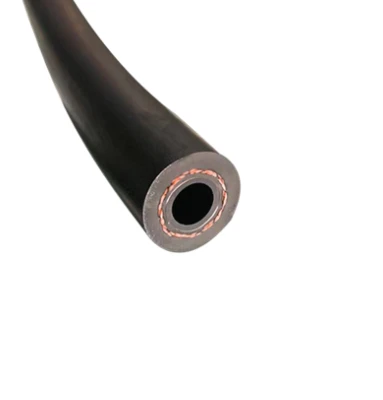hydraulic brake hose
Oct . 07, 2024 02:40 Back to list
hydraulic brake hose
The Importance of Hydraulic Brake Hoses in Modern Vehicles
Hydraulic brake hoses are critical components in the braking systems of modern vehicles, ensuring safety and performance during operation. They are responsible for transmitting brake fluid from the master cylinder to the brake calipers or wheel cylinders, enabling the vehicle to come to a stop effectively. Understanding the significance of hydraulic brake hoses, their construction, maintenance, and potential issues can help vehicle owners ensure a safe driving experience.
Construction of Hydraulic Brake Hoses
Hydraulic brake hoses are typically constructed from durable materials designed to withstand high pressures and harsh environmental conditions. The exterior of the hose is often made from a layer of synthetic rubber or a polymer that provides protection against abrasion, heat, and exposure to chemicals. Inside, the hose consists of a reinforced layer that ensures it can handle the pressure generated during braking without rupturing. The inner lining is usually crafted from materials resistant to corrosion and degradation from brake fluid.
One of the most critical aspects of hydraulic brake hoses is their ability to maintain integrity under extreme conditions. As vehicle components heat up during operation, the brake hoses must be able to resist expansion and contraction without failing. This resilience is essential for maintaining consistent brake performance, especially in high-performance or racing vehicles where braking systems are put to the test.
Functionality and Importance
The functionality of hydraulic brake hoses is fundamental to the overall braking system. When a driver presses the brake pedal, the master cylinder generates hydraulic pressure, pushing brake fluid through the hoses to the brake calipers. This pressure activates the brake pads against the rotors, slowing down or stopping the vehicle. If any part of this system fails, particularly the brake hoses, it can lead to catastrophic results.
In daily driving situations, the importance of having well-maintained brake hoses cannot be overstated. A worn or damaged hose can lead to brake fluid leaks, resulting in reduced braking power and a longer stopping distance. This scenario can significantly increase the risk of accidents, making regular inspection and maintenance of hydraulic brake hoses a necessity.
hydraulic brake hose

Maintenance of Hydraulic Brake Hoses
To ensure the longevity and reliability of hydraulic brake hoses, routine maintenance is essential. Vehicle owners should regularly inspect their brake hoses for signs of wear, such as cracks, bulges, or fraying. Any visible damage should be addressed immediately, as it can compromise the entire braking system.
Moreover, it is advisable to replace brake hoses every four to six years, even if there are no visible signs of damage. Brake fluid is hygroscopic, meaning it absorbs moisture over time, which can lead to corrosion and degradation of the hoses. Flushing the brake fluid and replacing it with fresh fluid as part of routine maintenance can help extend the life of hydraulic brake hoses and improve overall braking performance.
Common Issues
Despite their robust construction, hydraulic brake hoses can encounter several issues. One common problem is the growth of internal rubber deterioration, which can lead to blockages or leaks. Furthermore, exposure to extreme temperatures, harsh chemicals, and physical damage from road debris can all compromise the integrity of the hoses.
Another issue is the risk of brake fade, where excessive heat buildup leads to decreased performance. This problem can arise from prolonged heavy braking or improper hose placement, which exposes them to excessive heat from engine components.
Conclusion
In conclusion, hydraulic brake hoses play a vital role in vehicle safety and performance. Understanding their construction, functionality, and maintenance needs is crucial for every vehicle owner. Regular inspections and timely replacements of these components can prevent potential hazards and ensure a reliable braking system. By prioritizing the maintenance of hydraulic brake hoses, drivers can enhance their safety on the road, ultimately leading to a more secure driving experience.
